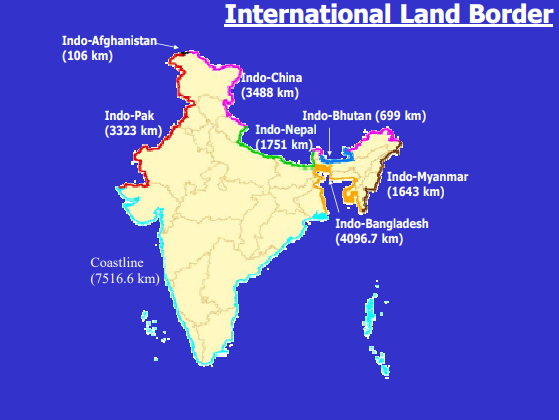Internal Security
Need for a National Crisis Management Response Framework
- 20 Oct 2023
- 5 min read
For Prelims: National Security Guard, Israel-Palestine
For Mains: Security Challenges and their Management, Security Forces & Their Mandate, National Security Guard
Why in News?
In light of the recent attack in Israel, India's National Security Guard Director has stressed the importance of building a crisis management response framework for extreme terrorist scenarios.
What is the Need for a National Crisis Management Response Framework?
- Preparedness for Unpredictable Threats:
- Extreme terrorist scenarios often unfold with little warning, necessitating a well-defined preparedness strategy.
- A crisis management framework ensures that authorities are equipped to handle unexpected security challenges.
- Coordination among various agencies, both at the federal and state levels, is crucial in countering terrorism effectively.
- The framework will establish clear protocols for collaboration and communication during crises.
- Mitigating Impact:
- Rapid and well-coordinated responses can significantly reduce the impact of terrorist incidents, minimizing casualties and damage.
- A structured crisis management framework provides guidance on mitigation strategies.
- Safeguarding Critical Infrastructure:
- Terrorists frequently target critical infrastructure, endangering national security.
- The framework should incorporate measures to protect vital infrastructure during a crisis, ultimately enhancing national security by comprehensively addressing extreme terrorist scenarios.
- This framework will be a crucial component of the nation's security infrastructure, ensuring resilience against evolving threats.
- Terrorists frequently target critical infrastructure, endangering national security.
- Enhancing Counterterrorism Capabilities:
- The framework encourages continuous training and skill development for personnel involved in counterterrorism efforts.
- Ongoing investment in skills and capabilities ensures that responders remain at the forefront of their craft.
- The framework should acknowledge the synergy between advanced technology and highly skilled personnel. However, it's the combination of individuals and weaponry that ultimately makes the decisive difference, despite technological advancements.
- The framework encourages continuous training and skill development for personnel involved in counterterrorism efforts.
- Border Security Challenges:
- India's immense landmass and its strategic location in Southern Asia give rise to significant security concerns.
- India's 7,683 km coastline and a vast Exclusive Economic Zone (EEZ) necessitate robust maritime security measures.
- With over 15,000 km of land borders shared with seven countries, including challenging borders with China and Pakistan, the demand for effective border management is paramount.
- Porous borders and challenging terrain add complexity to security. Issues include cross-border terrorism, militant infiltration/exfiltration, and the rise of non-state actors.
- The above-mentioned challenges underscore the need for a comprehensive national crisis management framework.
- India's immense landmass and its strategic location in Southern Asia give rise to significant security concerns.
What is the National Security Guard?
- About:
- NSG is a Federal Contingency World Class Zero Error Force that deals with anti-terrorist activities in all manifestations.
- The NSG is a Force specially equipped and trained to deal with specific situations and is therefore, to be used only in exceptional circumstances to thwart serious acts of terrorism.
- NSG formally came into existence in 1986 by an act of Parliament- ‘National Security Guard Act, 1986’.
- Vision:
- A World Class Zero Error Force.
- Mission:
- "Train, equip, and maintain in readiness a special force capable of swiftly and effectively combating terrorism to uphold its motto of 'Sarvatra Sarvottam Suraksha'.
- Functioning:
- It operates under the Ministry of Home Affairs and is a task-oriented force that has two complementary elements in the form of
- Special Action Group (SAG) comprising of the Army personnel- is the main offensive or the strike wing of the NSG, and
- Special Ranger Groups (SRG) comprising of personnel drawn from the Central Armed Police Forces/State Police Forces. They generally handle VIP securities.
- The head of NSG- designated as Director General (DG), is selected and appointed by the Minister of Home Affairs.
- It operates under the Ministry of Home Affairs and is a task-oriented force that has two complementary elements in the form of
- Operations undertaken:
- Operation Black Thunder (Golden Temple, Amritsar, 1986 & 1988).
- Operation Ashwamedh (Indian Airlines Flight-IC427 hijacking, India, 1993).
- Operation Thunderbolt or Vajra Shakti (Akshardham Temple attack, Gujarat, 2002).
- Operation Black Tornado (Mumbai Blasts, 2008).
- Operation Dhangu Suraksha, Pathankot, 2016.
- NSG Headquarters: Manesar, Gurugram.





